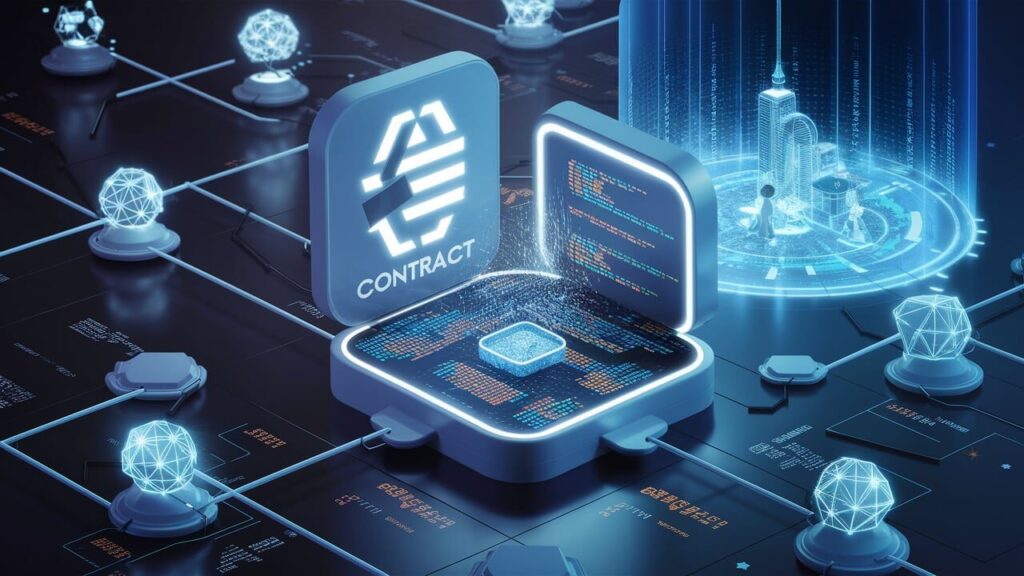In the rapidly evolving world of technology, legal systems must adapt to new innovations to stay relevant and effective. One such groundbreaking development is the emergence of video contracts on blockchain technology. This innovation has revolutionized the way contracts are created, executed, and managed, blending advanced technology with legal frameworks to ensure security, transparency, and authenticity. As we delve deeper into blockchain video contracts, we explore their key benefits and the potential they hold for transforming the legal sector.
Understanding Blockchain Technology and Its Role in Contracts
Blockchain technology is a decentralized, distributed ledger system that records transactions across multiple computers, ensuring the integrity and immutability of data. Unlike traditional contracts that rely on intermediaries, such as legal professionals or third-party organizations, blockchain contracts allow parties to engage directly, reducing the need for middlemen.

In the context of legal agreements, contracts on blockchain refer to the storage and execution of contracts on a blockchain network. These contracts, once uploaded to the blockchain, become permanent and cannot be altered or tampered with, ensuring immutability and authenticity. This technological advancement ensures that contracts remain secure, transparent, and accessible to all relevant parties, paving the way for greater security in legal contracts.
What are Blockchain Video Contracts?
Video contracts are another layer of innovation in legal technology. They involve recording the parties involved in the contract visually and audibly as they agree to specific terms. When combined with blockchain technology, video contracts become even more powerful, offering an unprecedented level of transparency in contracts and minimizing the chances of disputes. These contracts can be securely stored on the blockchain, ensuring they remain tamper-proof and easily verifiable.
A typical blockchain video contract is created when two or more parties enter into an agreement via a recorded video session. This video is then encrypted and stored on a digital contract platform powered by blockchain. The result is a contract that is not only signed electronically but also visually witnessed, providing irrefutable proof of the contract’s authenticity and the parties’ intent to enter into it.
The Benefits of Blockchain Video Contracts
- Immutability of Contracts: One of the most significant advantages of blockchain video contracts is their immutability. Once a contract is uploaded onto the blockchain, it cannot be altered. This feature is crucial for maintaining trust between parties, as it eliminates the possibility of post-execution modifications that might otherwise lead to legal disputes. With contracts on blockchain, the integrity of the agreement is preserved indefinitely.
- Enhanced Security: Security in legal contracts is a paramount concern, especially in the digital age. Traditional contracts are vulnerable to hacking, fraud, and forgery. Blockchain technology mitigates these risks by providing a secure, decentralized system that ensures data protection. Since blockchain is nearly impossible to hack, parties can be confident that their digital contract management processes are secure.
- Transparency in Contracts: Transparency is essential for fostering trust and collaboration in legal agreements. With blockchain, every action related to a contract—such as viewing, signing, or executing—is recorded on the ledger and made visible to authorized parties. This transparency in contracts ensures that all parties remain accountable and that any attempts to alter the agreement can be easily traced.
- Smart Contracts and Automation: Another significant benefit of blockchain technology in the legal sector is the rise of smart contracts. These are self-executing contracts with the terms directly written into code. When certain conditions are met, the contract automatically executes the agreed-upon actions, such as releasing payments or transferring assets. This automation speeds up the contract execution on blockchain and reduces the likelihood of human error or manipulation.
- Personalized Video Contracts: Video contracts on blockchain can be customized to meet the specific needs of the parties involved. Whether it’s a business deal, employment agreement, or service contract, the video format allows for greater flexibility and personalization. Parties can include specific visual elements, explanations, or demonstrations within the contract, making it a truly personalized video contract experience.

The Future of Blockchain in the Legal Sector
As blockchain technology continues to evolve, its potential applications in the legal sector are vast. Blockchain in the legal sector has already shown its ability to transform traditional practices, and innovation in contracts is just the beginning. From secure digital signatures to the digital contract platform, blockchain offers modern solutions that streamline legal processes and increase efficiency.
In the future, we can expect to see video contracts become the norm in various industries, as they provide an added layer of authenticity and accountability. Additionally, the integration of smart contracts will further simplify contract execution on blockchain, reducing delays and disputes. The combination of blockchain technology and video contracts represents a monumental shift in the way legal agreements are conducted.
Conclusion
In a world where legal processes must keep pace with technological advancements, blockchain video contracts offer a modern, secure, and efficient solution. By combining the immutability of contracts with the transparency of video documentation, these contracts provide unprecedented levels of trust and security for all parties involved. As blockchain technology continues to reshape the legal landscape, the use of digital contract management tools such as video contracts will likely become a standard practice in the legal sector. With the rise of blockchain in the legal sector, we are witnessing the dawn of a new era in modern legal solutions that ensure contracts remain transparent, secure, and trustworthy.



